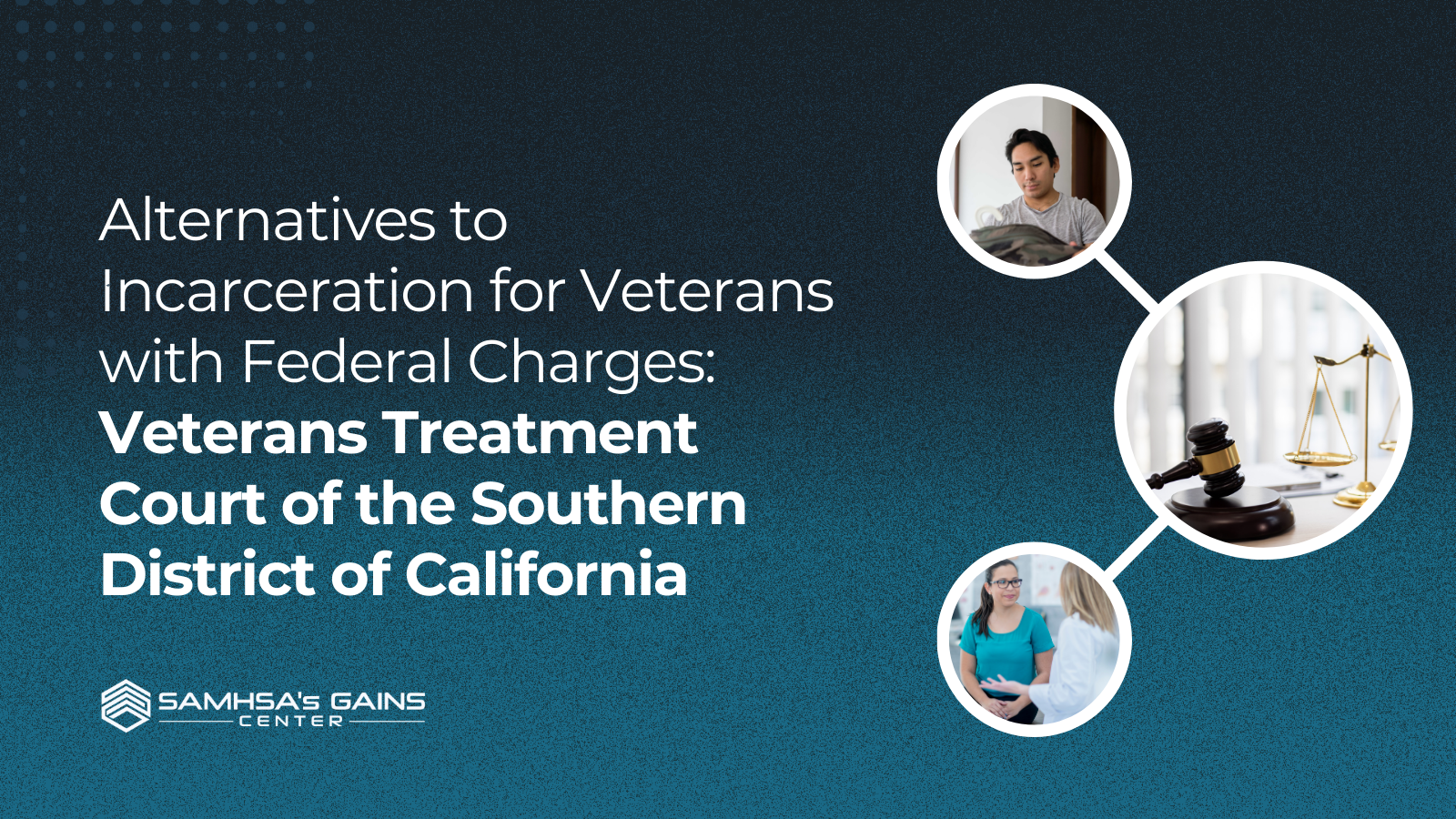The Southern District of California’s Veterans Treatment Court (VTC) is an intensive, multi-phase program leveraging federal, state, and local resources to provide participants with access to expanded pretrial supervision services, mental health and substance use treatment, wraparound support, and the opportunity to avoid the long-lasting consequences of a federal felony conviction. Put simply, VTC offers Veterans a second chance.
“Veterans returning home from service face unique and significant challenges that can impact their behavior and interaction with the criminal justice system,” notes Chief U.S. Pretrial Services Officer Zena Ajou. “San Diego is home to the largest population of Operation Iraqi Freedom and Operation Enduring Freedom Veterans in the country. Many found themselves in a post-service, downward spiral characterized by drug and alcohol misuse, divorce, unemployment, homelessness, and finally crime.”
The Program
Recognizing the scope of the problem, Assistant United States Attorney Blair Perez, previous Chief U.S. Pretrial Services Officer Lori Garofalo, and then-U.S. Magistrate Judge William V. Gallo established the VTC in the Southern District of California. Formed in 2016, it offered an alternative to conviction and incarceration for Veterans who suffered significant service-related injuries and had entered the federal criminal justice system. The founding team’s extensive lived experience with military service provided valuable insight into the resources and support returning Veterans need to overcome barriers to mental health and substance use treatment, housing, employment, and education, and other issues.
VTC takes court supervision (participants meet with a magistrate judge at least monthly) and an extensive network of treatment services and community supports and brings them together into a three-phased, structured approach. Specific requirements of each phase must be completed to advance to the next phase. The three phases include:
- Phase one: Stabilization and accountability, which may entail assessment of and treatment for substance use disorders and mental health conditions.
- Phase two: Engagement and responsibility, as demonstrated by employment or education.
- Phase three: Independence and community reintegration, during which participants engage in community service.
The program is tailored to the unique needs of each participant in terms of both activities and duration, which ranges from a minimum of 12 months to a maximum of 24 months. Participants in the program, many of whom have U.S. Department of Veterans Affairs disability ratings, represent a wide variety of backgrounds, perspectives, and identities.
Evolution
Since its inception, the program has expanded to Veterans without a service-related injury to more broadly serve all Veterans, and staffing has increased accordingly. Current staff comprises two magistrate judges, two pretrial services officers, two assistant U.S. attorneys, five defense counsel, two U.S. Department of Veterans Affairs liaisons, and a volunteer mentor coordinator. As with the founding team, many staff members are Veterans themselves, which infuses the program with an understanding of the unique culture of the military and generates credibility among participants.
More than 70 Veterans have participated in VTC over the years. Among the graduates between 2017–2023, there have been no new felony convictions and a 3.3 percent recidivism rate for any conviction type.
“These are win-win-win outcomes,” reflects Ajou. “Veterans become productive and engaged members of society again. The community benefits from increased public safety. The criminal justice system is regarded as a source of holistic support and services for rehabilitation, rather than administrator of punishment.”
Additional Resources
- National Treatment Court Resource Center’s Veterans Treatment Court Resources
- Bureau of Justice Assistance’s Veterans Treatment Court Program
- All Rise’s Justice for Vets
Like what you’ve read? Sign up to receive the monthly GAINS eNews!


